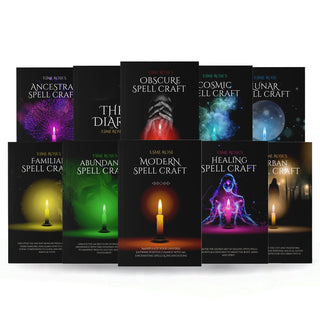When discussing the broad spectrum of magical practices, the topic of black magic often evokes a sense of mystery, fear, and intrigue. Black magic spells, known for their association with dark energies and intentions, have been a subject of fascination and controversy throughout history. This exposé aims to provide an informative overview of black magic spells, shedding light on their nature, use, and the ethical debates surrounding them.
Defining Black Magic
The Nature of Black Magic
Black magic is often defined as the use of supernatural powers for selfish, harmful, or malevolent purposes. It contrasts with white magic, which is used for benevolent purposes. The key distinction lies in the intention behind the spell and its potential effects.
Historical Context
Historically, black magic has been associated with malevolent forces and practices considered taboo. It has roots in various cultures and traditions, each with its own interpretation of what constitutes black magic.
Common Types of Black Magic Spells
Curses and Hexes
Curses and hexes are among the most notorious forms of black magic. They are intended to bring harm, misfortune, or control over an individual or group.
Binding Spells
While not always malevolent, binding spells that restrict someone's free will can fall under the umbrella of black magic, especially if used for personal gain or to harm others.
The Practice of Black Magic
Rituals and Ingredients
Black magic spells often involve complex rituals and specific ingredients believed to harness dark energies. These might include items symbolizing harm or control, such as thorns, nails, or objects linked to the target.
Invoking Entities
Some practices involve invoking entities or spirits considered malevolent or dark. This is often done to seek assistance in casting the spell or to draw on their power.
Ethical and Moral Considerations
The Debate on Ethics
Black magic sparks significant ethical debates within the magical community. Many practitioners condemn its use due to its potential to harm others and the practitioner's own spiritual wellbeing.
Consequences and Backlash
Beliefs such as the "Rule of Three" or "Karma" suggest that any harm sent out into the world will return to the sender manifold. This raises concerns about the personal and spiritual consequences of practicing black magic.
Contemporary Perspectives
Misunderstandings and Fear
Modern perspectives on black magic are often clouded by misunderstandings and fear. Popular culture and media have played a role in sensationalizing and demonizing these practices.
A Balanced View
A balanced view recognizes the existence of darker aspects within the magical spectrum while understanding the complex motivations and cultural contexts that surround the practice of black magic spells.
Conclusion
Black magic spells, with their focus on harnessing dark energies for specific intentions, represent a controversial and often misunderstood aspect of magical practice. While they have been a part of various cultural and spiritual traditions, they bring to the forefront important discussions on ethics, personal responsibility, and the impact of magical workings. As with any powerful tool, understanding and caution are paramount when exploring or discussing the darker side of magic.










